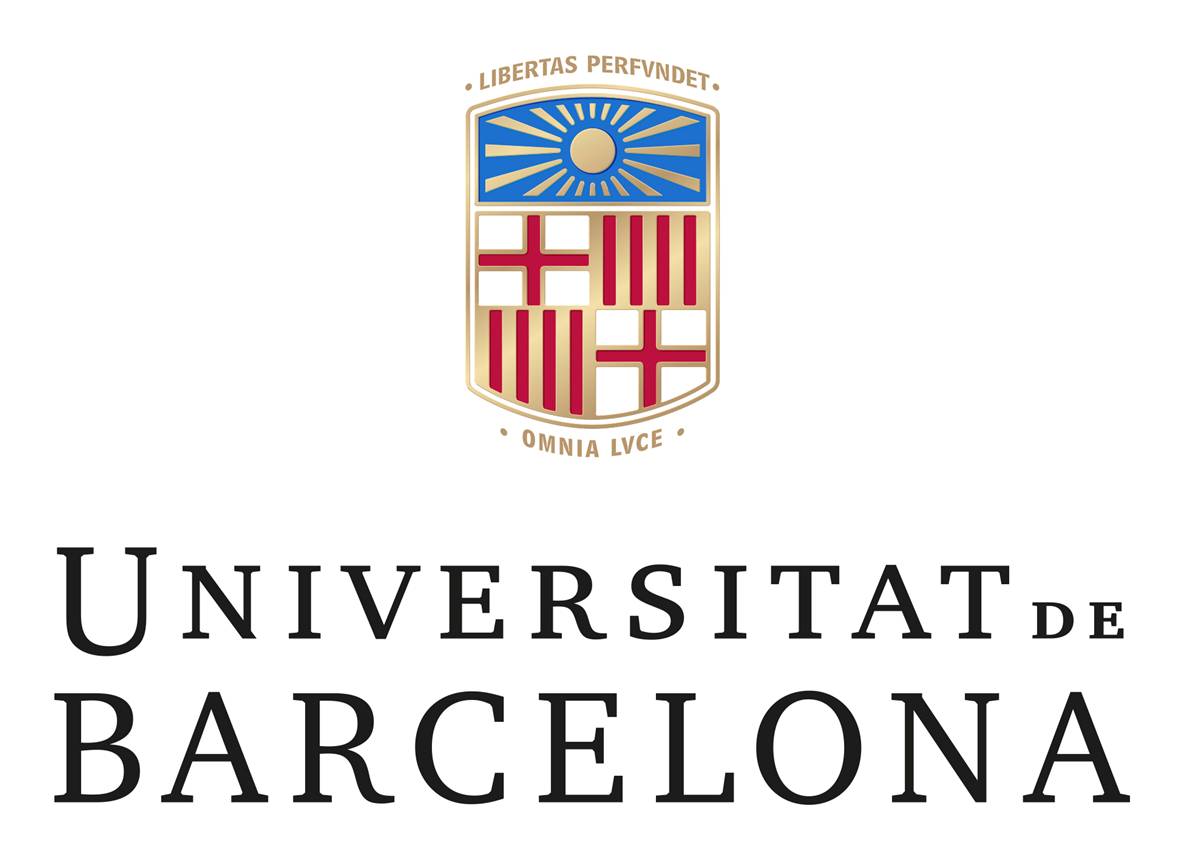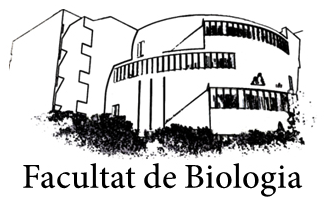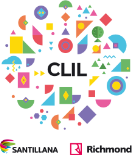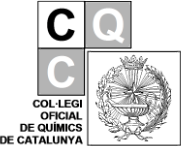Final Program
|
16 July |
MONDAY |
| 09:45-11:00 | Registration |
| 11:00-12:45 |
Session 1: Manuel F. Costa, chairman Héloïse D. Dufour. EvoKE. Empowering Science Literacy Stakeholders to Foster Understanding and Acceptance of Evolution |
| 13:00-14:00 | Lunch |
|
14:00-17:00 |
Lecture and workshop: Pradeep Kumar. Bionics and Scientoonics: Enjoy and Learn Science from Nature |
|
|
|
| 18:00-19:00 | Opening Session |
|
17 July |
THUESDAY |
| 09:00-09:45 |
Plenary Lecture: Claudi Mans. Feynman: Nobel, Drums, Topless and Didactics |
| 9:45-10:30 | Session 2: Sonia Seixas. Virtual tutoring Francesc Rocadenbosch. An Example from the Basic Engineering Project Subject at the UPC Telecom-BCN School: Learning Radiofrequency Links, Antennas and Amplifiers with the Help of Recycled Materials G Ocak. Examination of ‘Can_m Karde_im’ Cartoon in Terms of Preschool Values |
| 10:30-10:50 | Coffee break |
| 10:50-12:45 | Session 3: Iryna Berezovska. Nursing Informatics Project: Implementation and Outcomes A. F. Fidan. Developing a Scale to Measure Veterinary Medicine Students' Attitudes toward Biochemistry Lessons Daniel Martínez. Application of the GBL to the Teaching of Science Bülent Aydogdu. The Effect of Vee Diagram Use on the Nature of Scientific Knowledge M García Teneche. Ketone Bodies and Diabetes? Nataliia Yefymova. STREAM-Weeks in Primary School M Marques. Hands-on the Bacteria: A Journey to Human Microscopic Flora Burak Olur. The development of the Curriculum Fidelity Scale |
|
12:45-13:30 |
Plenary Lecture: Alec Bodzin. Socio-Environmental Science Investigations: Hands-on Active Learning with Geospatial Technologies |
| 13:30-14:30 | Lunch |
| 14:30-16:00 | Coffee - Club: Nil Salvat. Applied Biochemistry: an approach to Pokémon Cytology Xavier Hernández. The Role of Non-Formal Learning in Scientific Education |
| Session: I Ocak. Examination of Inquiry Learning Perception of Secondary School Students in Science Badr Ikken. Green Energy Park – a unique test, research and training platform for applied R&D and education by research |
|
| 16:00-18:00 | PCB Visit |
| Workshop: Silvia Zurita. Hands-on Virtual Experiments. Workshop of orientation to implementation |
|
18 July |
WEDNESDAY |
| 09:00-09:45 |
Plenary Lecture: |
| 09:45-10:30 |
Session 4: |
| 10:30-10:50 | Coffee break |
| 10:50-12:50 | Session 5 Carlos Giménez. Generating 3D Printable Models of Organic Compounds Using SMILES™ Jen-Chin Lin. Analysing the Learning Model of Museum Hands-on Scratch Programming with Activity Theory Ignasi Folch. What is cancer? How do we study it? An in vitro and in silico research JM Fernández Novell. Some reflexions about teaching and learning science I Ocak. The Development of a Scale on Co-Constructivism in Science Lessons Antonio Pinto. Programming a PID Control with a LEGO Robot Intended for a Pre-University Course L. Barroso. Hands-on Science Activities for Children Aged from 6 to 10: Perspectives from Partners of the Outreach Project Oriol Güell. Plastics and biodegradation: what is a bioplastic? |
| 12:50-13:30 | Demonstration: Cinzia Scorzoni. Friction, surfaces and atomic interactions: hands-on approach through comprehensive investigation of Gecko-tape properties |
| 13:30-14:30 | Lunch |
| 14:30-16:30 | Poster Session |
| Parallel Workshops: Mário Rui. Using the graphic calculator to study the sound Denise Balmer. Inside our bodies Benito Vázquez Dorrío. Linking vision and physics with simple hands-on activities |
|
| 16:30-19:00 | BCN visit |
|
19 July |
THURSDAY |
| 09:00-09:45 |
Plenary Lecture: |
| 09:45-10:30 | Session 6: Chien-Heng Chou. An electricity generator directly driven by ocean waves Dana Jancinová. Inspiring Each Other Mireia Díaz Lobo. DNA as genetic material: didactic experiments and laboratory practices |
| 10:30-10:50 | Coffee break |
| 10:50-12:45 | Session 7: Maruxa Martínez Campos. The PRBB: A Large Biomedical Research Cluster Committed to Education Frederike Seibol. Bertalanffy Project at COS Heidelberg: Bringing Cutting-Edge Science Close to Pupils Carla Conejo. Promoting Scientific Vocations: How to Prepare the Researchers of the Future? Jordi Pla. General dissemination of science: should we do it? Muriel Arimón. Science Education in Primary Schools: A Biomedical Research Institute’s Perspective Diego Gallego. Science and society: Reaching readers with a focus in communication Ana Sofia Ferreira. Predictive Microbiology in a Non-Formal Science Education Context: Understanding Food Preservation Techniques |
| 12:45-13:30 |
Plenary Lecture: |
| 13:30-14:30 | Lunch |
| 14:30-16:00 | Coffee - Club: Eric Matamoros. BioPREVENT AITM: A Spanish Health-Care Startup Borned from the Influence of Bioinformatics in Education and Society Jordi Pla. Innovation on Synthetic Biology by University Students: The iGEM Competition J Méndez Viera. Scientific Software at Schools |
|
16:00-18:00
|
Science Fair & Poster Session (in memory of Prof. Dr. Alex Kazachkov) |
| Workshop: Carmen Díez. Scenarios and scenes of opera for STEAM creative learning. Workshop global science opera with experiences for class implementation |
|
|
18:00-23:00 |
Bus to CONFERENCE DINNER Bus to BCN |
|
20 July |
FRIDAY |
| 09:00-09:45 |
Plenary Lecture: |
| 09:45-10:30 | Session 8: Cándido Fernández. Does the irrigation water passed by the microwave oven affect the plant growth? Pavel Semchucov. Nuclear physics for beginners - Hands-on Practicum G. Ocak. Eliminating the misconceptions of the 5th Grade Students in the subject "Fraction" by using Concept Maps |
| 10:30-10:50 | Coffee break |
| 10:50-12:30 |
Demonstration: |
| Session 9: Miguel Angel Queiruga. Citizen science: study of the change in the perception of science in secondary education students Nuray Kurtdede. Examination of life skills of teacher candidates in terms of some variables Josep Tarragó. Learning Metabolism: The Key Concepts and Laboratory Experiences to Understand the Main Metabolic Reactions MC Fernández Davila. III Week of Sciences. Evolution of a Community Educational Project Ral Mehrotra. Nurturing innovation: promoting ethos of creativity |
|
| 12:30-13:15 |
Plenary Lecture: |
| 13:30 | Closing Session |
SCIENCE FAIR:
- Pol Torrent Tornos. Spherification a practical tool to teach biotechnological concepts at schools
- P Torrent, J Méndez. Polymerization Reactions a Practical Tool to Teach Biotechnological Concepts at Schools
- Josep Tarragó-Celada. Colour, chlorophyll and chromatography
- Helena Ariño Bassols. Scientific Illustration with BioIllustra
- Beatriz Coelho, Bruno Vieira, Duarte Lima. Eco-friendly Periscope – "Hands-on Science" Fair Project 2018
- Victor Martins. Scientist Girls on-Drones: Growing the Future
- C Dias, L Cullen, R Rocha. Achieving Sustainable Development Goals (SDG) through Project-Based Curricula in Schools: The AQUASOIL Project Case Study
- Victor Martins. The Simpsons Looking for a Sky without Light Pollution. ’Scuse Me While I Miss The Sky
- Nuno Miguel Gaspar da Silva Francisco. EPIC - Experimental work for Primary teachers with Inquiry Collaboration
- Kseniia Minakova. Inquiry Based Science Education in National Technical University "Kharkiv Polytechnic Institute" as a Way to Increase the Popularity of Natural and Technical Sciences
- Silvia Lope. Research on CO2 and O2 concentration variation in the air
- Kseniia Minakova. How "Street Chemistry" and "Street Physics" settled at the National Technical University "Kharkiv Polytechnic Institute"
- Antonio Pinto Llona. Motivation and learning in the robot championships
- Hannah Voak. Hands-on teaching ideas from Science in School, the European Journal for Science Teachers
- Marc Canela Grimau. Breathalyser mechanism: the oxidation of ethanol
- Santillana Editorial
- Pidiscat lab material
POSTERS:
-
P1.- N. Francisco, L. Pereirinha. EPIC - Experimental work for Primary teachers with Inquiry Collaboration
-
P2.- Susana Luís Palma Carlos Lameiras de Figueiredo. Food allergy in children and school environment
-
P3.- Jessica Hernández García. Science, Medicines and Biotechnology in a Summer Camp
-
P4.- Diego Gallego Perez. Science and Society: Reaching Readers with a Focus in Communication
-
P5.- Erik Filter Expósito. Playing with spectrophotometry
-
P6.- Ana Sofia Ferreira Martins. Genomics Education: Update Core Concepts in High School
-
P7.- Mariona Lladonosa Soler. Study of Efficiency of Enzymes in Laundry Detergents
-
P8.- Terzis Fotis. Educational Constructions & Recycling
-
P9.- Genís Calderer. Self-similarity in mathematical modelling
-
P10.- Helena Martí Barragán. How Are GMOs Made?
-
P11.- Rita Capella Mestres. Hands-on genetics in primary school
-
P12.- Montserrat Tàpìas Anton. Multimedia and ICT Applied to the Study of Visual Acuity in High School Education
-
P13.- Clara Gaja Corbera. An Approach to Epigenetics through S. marcescens and the Application of Prodigiosin in Medicine
-
P14.- Jen-chin Lin. A study of discrepant events and picture books as the integrated design of science
-
P15.- Yun-Ju Chiu. The Impact of Teaching and Learning from Exploring the Repres-entation of Physics Laws and Their Historical Context: Kepler's Laws of Planetary
-
P16.- Chih-Ching Teng. Developing and Examining an Experimental Curriculum for Enhance "Green" Capability of Undergraduate Hospitality Students in Taiwan
-
P17.- Daniel Martinez. The Mysterious Element
-
P18.- Fina Guitart. Work. Researching on the effectiveness of solar protectors
-
P19.- Yury Panebrattsev. New Results from Colliders and Accelerators for School Teachers and School Students
-
P20.- M Quiroga Boveda, B Vázquez Dorrío. Assessing Learner Motivation and Academic Performance by Developing a Teaching Unit Using Roleplay-based Gamification
-
P21.- Hassan Hazarkhani. An impressive inquiry based hands on activity: teaching chemical reactivity
-
P22.- Liang-Han Chien. Development of Energy Conservation Technology College Education
-
P23.- Carme Zaragoza, Josep M Fernandez Novell. Visual presentations and science, they show more than you can see
-
P24.- David Gonzalez Bote. Management of a laboratory by means of digital tools
-
P25.- Victor Martins. The Simpsons Looking for a Sky without Light Pollution. 'Scuse Me While I Miss The Sky
-
P26.- Mila Kavalić. Engineering Manager: What Really Constitute This Profession?
-
P27.- Manel Bosch. Microscopy Images Are Not Worth a Thousand Words
-
P28.- M. Dolors Grau. Open Science Schooling: One experience of exploratori
-
P29.- Jen-chin Lin. A study of discrepant events and picture books as the integrated design of science activities
-
P30.- Tiago Moisés Azevedo Ribeiro. El Lab de Papel: DNA profiling made by (forensic) secondary school students
-
P31.- C H Chou. Magnetic collision experiment
-
P33.- Show-Yu, Lin. Exploring College Students' Healthy Conceptions from Representations of Drawings: Some Considerations of Healthy or Unhealthy
-
P34.- Hanieh Alinejad. An IBSE hands-on activity for middle school: heat maintenance
-
P35.- Hassan Hazarkhani. An exciting hands-on activity for meaningful teaching of air pressure
-
P36.- B Vázquez Dorrío. Scientix, the Community for Science Education in Europe
-
P37.- B Solà Fustagueras. Understanding Aging: An Educative Way of Learning Science
-
P38.- D. López Blanco. Diabetes and metabolic role of the Adrenaline
-
P39.- CH Chou. Making Simplified Professional Wind-Turbines by Using Mould Method
-
P40.- A Martins, F Tavares. Genomics Education: Update Core Concepts in High School
-
P41.- C Dias, L Cullen, R Rocha . Achieving Sustainable Development Goals (SDG) through Project-Based Curricula in Schools: The AQUASOIL Project Case Study
-
P42.- M Arnau Pagès. Companies for a Better World
-
P43.- V Martins, T Rodrigues, MFM Costa, B Cleto. Scientist Girls on-Drones: Growing the Future
-
P44.- MFM Costa. The Aurora. Wonder and Science
-
P45.- M Martín Gallego. Polyphenols: Molecules with Biological Activity
-
P46.- K Makowska. Edward Flatau (1868-1932) and his contributions to the development of Neuroscience and Neurosurgery
-
P47.- Lina Trujillo. Use of a Handmade Phantom to Learn Ecoguided Cystocentesis Technique with Veterinary Medicine Students
-
P48 - Jaqueline L. Steinbruck. KnowBody: virtual reality system with haptic sensors for Anatomy teaching - an alternative viable and bioethic to dissection
Maximum poster size (A0 vertical)







